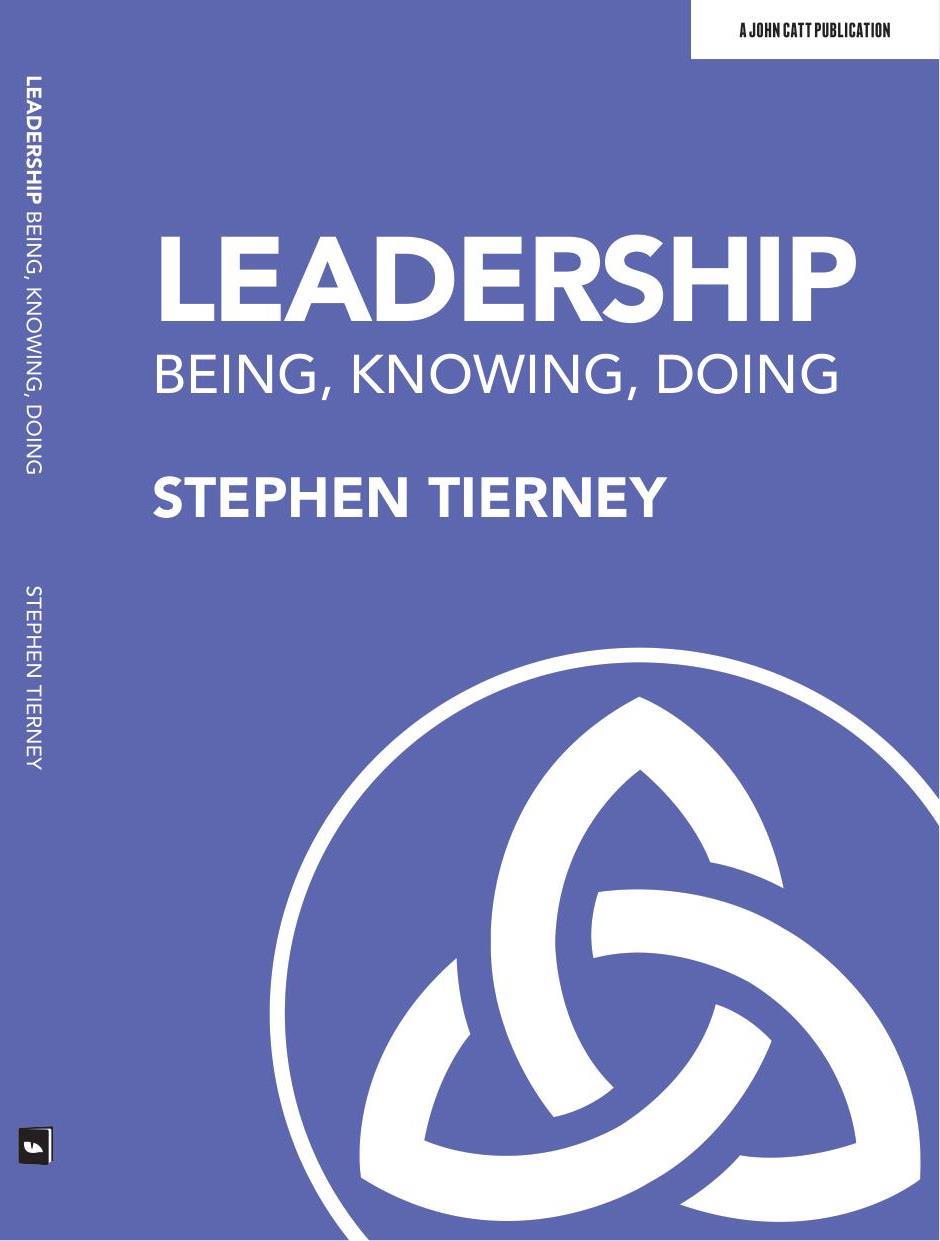The Queen’s Speech for another Parliamentary session has been delivered and the prospect of far more schools being forced to become academies looms large as well as a few hundred new free schools. Being called a coaster is now something which has potentially far reaching consequences.

Photo Credit: Sarah Parrott via Flickr cc
The legislation to be brought before Parliament will actually define what a coasting school is but for now we can just try to guess and second guess what the Secretary of State has in mind. The one thing we can be certain of is any definition or metric proposed will be anything but perfect. Whether it even manages to be good enough will be debated long and hard when it is eventually made public. I know it won’t be perfect and I doubt it will even be good enough. I’m worried it may even be unjust and certainly a massive distraction. The whole concept of flogging the system harder to raise morale and improve standards has long since lost its efficacy. You simply can’t bully a system to greatness.
The whole thing is unlikely to really impact on me or the schools I have a responsibility for as we all converted to academies last year as part of a multi academy trust. Whilst one of the schools was in a category and under some pressure to convert, we had been debating the potential benefits of working much more closely together for over eighteen months. St. Mary’s and Christ the King were already hard federated and so the transition was relatively smooth. I say relatively as it wiped out most of my summer holiday debating who owned a piece of grass. It’s the land issues rather than local democracy which can be the hold up in many cases. The new bill is unlikely to do much to resolve this. We now have a single Board of Directors and no local governing bodies. We act together in the interest of all our young people.
The Ethics of Academisation
In looking at the academy issue I’m desperately straining to remember some lectures from my Pharmacology Degree about ethics. It’s over thirty years ago now and whilst I still vividly remember a tall, slim, beautiful girl with long dark hair the ethics lectures are a bit more faded so I hope I don’t get this too wrong.

Photo Credit: Alina Sandu via Flickr cc
When trialling a drug there are a number of ethical issues; you must not knowingly test a drug on people which may cause them harm nor deliberately deny patients a drug which you know is likely to be of benefit to them. Any trial, there was something about double blind in there somewhere, should seek to establish the efficacy of a drug often against a control group who unknowingly took a placebo. There was a requirement for information to be provided to allow a person to make an informed choice, about whether s/he wanted to be involved in the trial, and the ability for them to withdraw at any stage.
Writing History By Stealth
The issue of structural change has been on the political agenda for decades. The 1944 legislation which produced the tripartite system of education, later leading to the formation of comprehensive schools, was ground breaking at the time. Changing the status of a school has become a political imperative over the past few decades: grant maintained, a city technology college, a sponsored or converter academy or a free school, has limited evidence of impact is so currently you’re not quite sure whether you are taking the placebo or the pathway to magical transformation. Sometimes it seems the illusion of action is more important than its impact. It’s against this backdrop that the ethics of academy conversion should be viewed.
Nicky Morgan MP has consistently argued for the benefits of academies and their much vaunted freedoms. The ethical issue is this; if academy status and these freedoms significantly benefit children and their education then it would seem to be morally wrong to deny any young people these advantages. It’s akin to giving ill people a placebo when you know the trial drug actually works. HeadsRoundTable advocate the granting of academies’ freedoms to all schools irrespective of their status and this could be one avenue for her to explore. The Secretary of State arguably should have brought forward legislation that all schools must convert to academy status given her belief of the proven benefits.
Alternatively, the reverse is also true, if benefits are not yet proven or unlikely to exist it shouldn’t be imposed on all schools and all children until the current trial of academy status has been fully evaluated. There are enough schools who are academies, or free schools for that matter, to determine whether their creation is beneficial or not. The Education Select Committee were unconvinced of any significant impact and so instead of rushing headlong to greater academisation there should be a period of evaluation and discernment as to what works. We are seeing massive structural change by stealth with after the event system design. For example, the introduction of Regional School Commissioners who are likely to see their role changing continually over the next five years.
The final ethical issue is about compunction to convert is actually complicated by children’s right to a good education. The compunction to do good, what this actually means and how to determine competing rights is more of a thesis than a paragraph in a blog post. This debate sits within a wider agreement by politicians, educationalists, teachers, parents, young people and society in general that we want the best possible Education System we can. Our young people deserve nothing best. The debate is how best to achieve it. We can keep focussing on structures or shift our gaze to the class room and the process of learning. One creates froth the other may take us from a system stuck at good to the World Class one we all crave. I’ll leave it to you to decide which one is which.

Photo Credit: Khanh Hmoong via Flickr cc
And the girl with the long dark hair … I asked her to dance and the rest, as they say, is history.



Wow! This is what I’ve been waiting to hear.
This paragraph for me hits the nail on the head:
“Our young people deserve nothing best. The debate is how best to achieve it. We can keep focussing on structures or shift our gaze to the class room and the process of learning. One creates froth the other may take us from a system stuck at good to the World Class one we all crave. I’ll leave it to you to decide which one is which.”
I think it’s time to go back to what we do best and what we joined the profession for – focus on the students, the classroom and being the best teachers we can.
I’ve wasted too much energy this year on worrying about external forces. I work in a converter cooperative academy with positive results in all subjects except Maths. Our English results dipped to just below the national average due to last minute changes and bingo one no notice inspection later we are in special measures. I’m not saying we aren’t to blame, as a member of SLT I take full responsibility for the position we are in at present, but external forces, recruitment issues, tinkering with grade boundaries, fiances etc. haven’t helped. The report reads like a car crash of a school, which we are not. Everyone who visits (and I mean everyone) says ‘this doesn’t seem like a special measures school’. Which is why ten months on we are all still in a job. The DfE brokers left us dangling but have not forced a sponsor on us, we have an formal arrangement with a MAT sponsor of our choosing but we’ve not be forced to join them.
So the froth outside our school gates can go on, I intent to focus on the following:
Student centred leadership
A strong focus on teacher development
CPD based on what really works
Finally really good feedback and take up time for our students to master skills and develop deep understanding rather than how to jump through hoops.
So @NickyMorgan01 I’m not interested in what you’re saying until you show me some evidence that your meddling will have an impact in a positive way on what really matters to us teachers – our students!
Thank you for posting something that has finally clarified my thinking.
Helen
Posted by Helen Tonks | June 4, 2015, 9:12 amThink I’ve just tweeted out a link to your blog – hope I have.
Posted by ExecutiveHT | June 4, 2015, 4:20 pmThank you! It’s my maiden post 🙂
Posted by helen1505 | June 4, 2015, 9:58 pmTrouble is that, unless the conversion has such a big effect either way on outcomes that it’s blatantly obvious in the data (it’s not), there is always going to be too much noise to discern any subtle difference. That’s why drug trials are randomised. If anyone thinks that a change of status will make a difference then they needed to have been advocating randomised allocation to either the new status or the status quo, with desired outcomes set out in advance and a clear methodology described. As a great example, look at your school(s) and Helen’s – completely different drivers towards academisation and neither in a position to just trundle on with maintained status doing very nicely thank you very much. There’s a good chance Helen’s school, if it converts, will show improvement because the data is effectively cherry-picked, starting from a dip caused by what sounds like an unfortunate and probably random set of circumstances. The school(s) in your MAT that have converted might show improvement due to closer collaboration or something. Any apparent difference between academies and maintained schools in the data could be due to any combination of these sorts of things. But that’s so obvious I find it hard to believe anyone would even think it worth trying to learn anything from the data.
This is the sentence in your post that matters:
“Sometimes it seems the illusion of action is more important than its impact”.
Anyway, surely the definition of coasting will in some way be any school that doesn’t show continuous improvement in relation to the national average. By that measure, wait long enough and every school will be caught out. Just like it sounds as though Helen’s has been.
Best wishes
Posted by dodiscimus | June 4, 2015, 8:37 pmAs always, thanks for adding some great thoughts and a new perspective for people to consider
Posted by ExecutiveHT | June 4, 2015, 10:15 pm